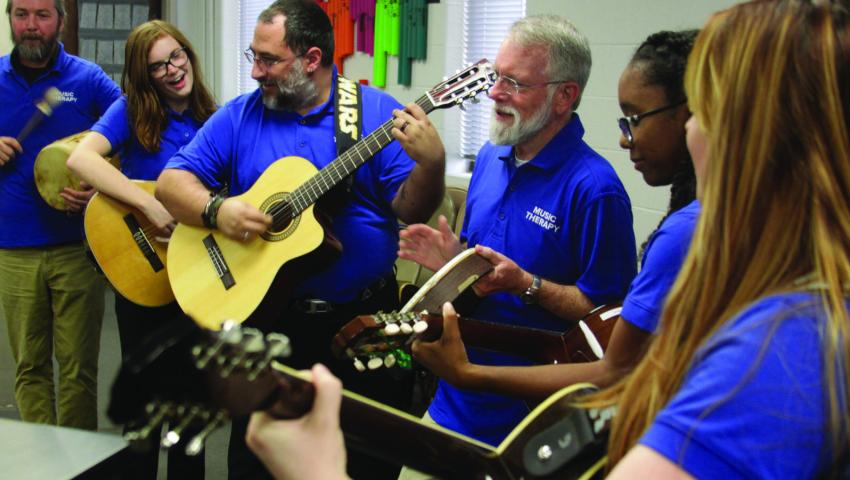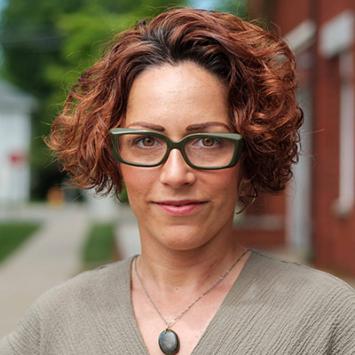What is Music Therapy?
A board-certified music therapist (MT-BC) works within a therapeutic relationship with clients using music-based techniques to address individualized goals. All manner of music engagement may serve as the foundation for music-based experiences in music therapy (e.g., singing, playing instruments, talking about music, moving to music, creating music, music listening, etc.). Music therapists adapt to the people they work with. Depending on the goal, music therapists typically use music that is preferred by the people they work with (music is not “good” or “bad”), and often music that is familiar to them (but not always!).
Music therapy may be used to:
- Promote wellness
- Manage stress
- Alleviate pain
- Improve social skills
- Express feelings
- Support memory and cognition
- Improve communication
- Improve coping skills
- Promote physical rehabilitation
- …and many other goals
For more information about music therapy, please visit the American Music Therapy Association and the Certification Board for Music Therapists.
Admissions and Requirements
You can find tuition refund policies, deadlines, amounts, and other important information on the Student Accounts site.
Applications for Fall admissions are due March 15, which is earlier than the Graduate School deadline! If you plan to apply for a graduate fellowship, you must complete your application a few months earlier than that. Please review information about graduate fellowships on the UK Graduate School website.
The information here is presented for your convenience. Be sure to always check the official UK Catalog for course requirements and degree information.
Contact Dr. Alaine Reschke-Hernandez for more information.




